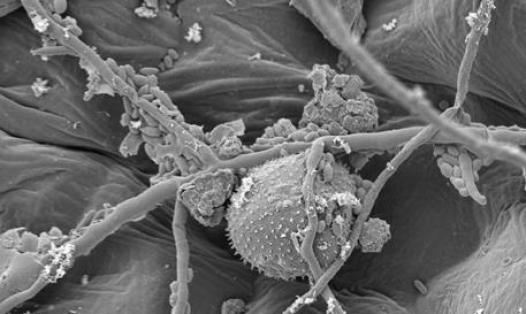


Here we characterise this adaptation, both in the laboratory and a simulated clinical setting, and identify a novel antiseptic resistance mechanism. In both settings, 2 to 4-fold increase in octenidine tolerance was associated with stable mutations and a specific 12 base pair deletion in a putative Tet-repressor family gene (smvR), associated with a constitutive increase in expression of the Major Facilitator Superfamily (MFS) efflux pump SmvA. Adaptation to higher octenidine concentrations led to additional stable mutations, most frequently in phosphatidylserine synthase pssA and occasionally in phosphatidylglycerophosphate synthase pgsA genes, resulting in octenidine tolerance 16- to 256-fold higher than parental strains.
Metabolic changes were consistent with mitigation of oxidative stress and altered plasma membrane composition and order. Mutations in SmvAR and phospholipid synthases enable higher level, synergistic tolerance of octenidine.
Antibiotic-resistant bacteria in healthcare mean increasing reliance on the use of antiseptics and disinfectants (biocides). Studies on high-consequence nosocomial infections caused by Klebsiella pneumoniae1,2, Enterococcus faecium3, Staphylococcus aureus4 and Pseudomonas aeruginosa5 have shown increased tolerance to biocides, potentially making them problematic for infection-prevention and control (IPC).
P. aeruginosa, a Gram-negative opportunistic pathogen, causes outbreaks with high morbidity and mortality in neonatal units6, burns patients7,8 and persistently in cystic fibrosis sufferers9. Multi-drug resistant strains of P. aeruginosa are increasing10,11, reducing treatment options. Low membrane permeability and multi-drug efflux pumps cause higher biocide tolerance and resistance to many antibiotics12.